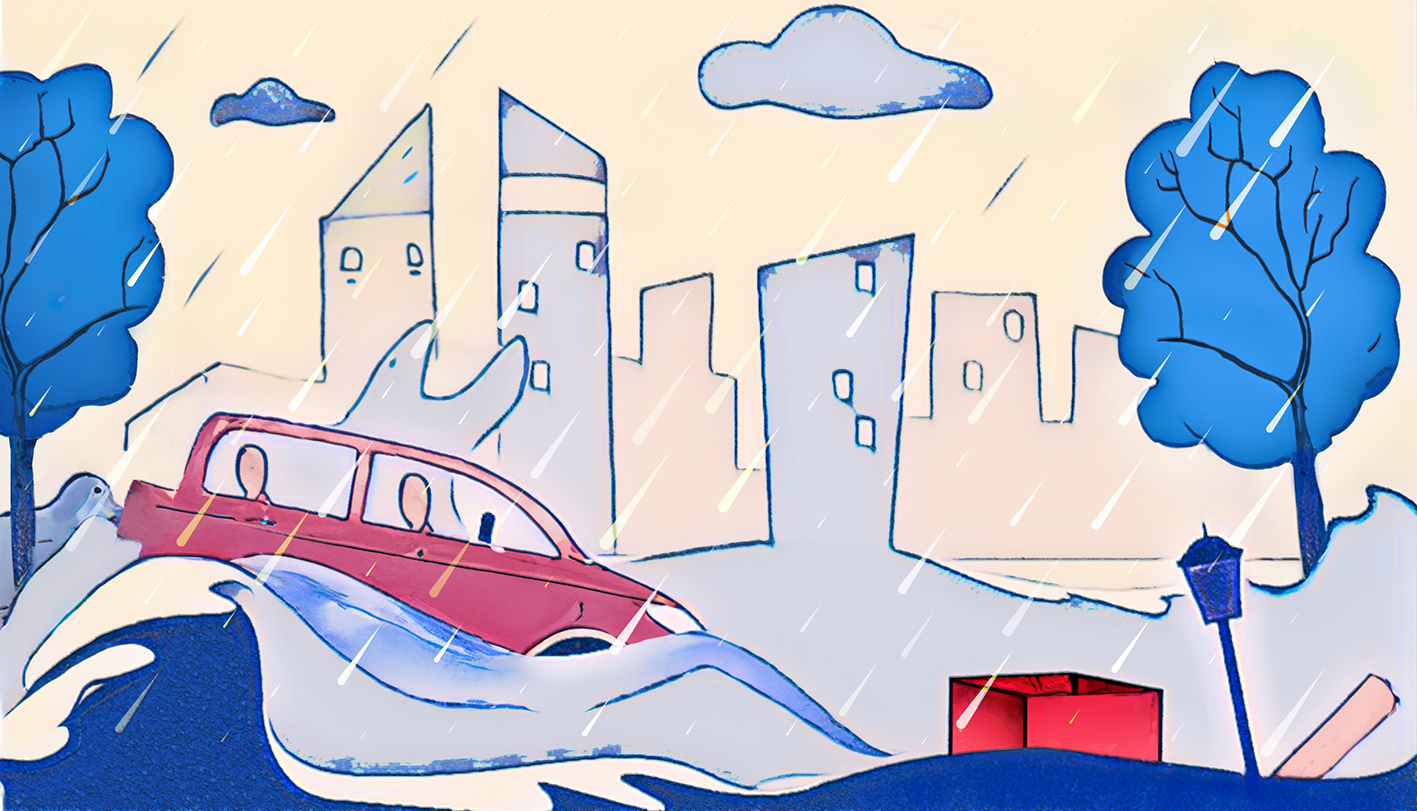Looking back on Mississauga’s summer of record-breaking rainfall and flooding
Mississauga residents are demanding greater measures to be taken to prevent future weather disasters after two catastrophic rainfalls occurred over the summer.
Over the 2024 summer, regions in the Greater Toronto Area (GTA) including Mississauga experienced record-breaking rainfall and flooding, leaving residents, businesses, and emergency crews grappling with the storm’s devastating aftermath.
On July 16, heavy downpours flooded Mississauga streets and highways, trapping drivers in their vehicles, flooding homes, and causing creeks to overflow into parks and greenspaces. The City of Mississauga’s 311 Call Centre received nearly 2,000 calls on the day of the rainfall alone, with Mississauga Fire responding to over 160 emergencies—a toll which does not include requests for information or public assistance.
The intensity of the rain was such that maintenance hole covers were being dislodged, creating hazards for both vehicles and pedestrians. Emergency calls were placed for elevator rescues, motor vehicle collisions, alarm activations, and welfare checks for citizens and business owners stranded by floodwaters.
According to Platoon Chief Steve Kraft, who told insauga.com, the incident was a “lifetime event,” meaning it was a day like no other. In only a few hours, there were nearly 106 millimetres of rainfall, which is more than the average of 75 millimetres the city typically receives for the July month.
No deaths were reported however the rainfall caused an overflow from Etobicoke Creek into the first floor and parking lot of Tyndall Seniors Village—a long-term care and retirement home near Eglinton and Tomken in Mississauga. Water rescue teams used boats at the home to transport more than 100 residents to safety in what took nearly a 12-hour operation.
116 residents were transported to two other long-term care facilities and two hotels, with none requiring emergency medical treatment.
Meanwhile, in Toronto, the rainfall flooded the Don Valley Parkway and resulted in power outages leaving 37,000 Toronto Hydro customers without power. The estimated financial damage from the rainfall is C$1 billion.
One month later, on August 17 and 18, in a disastrous case of déjà vu, the city experienced more heavy rain, with some areas in Mississauga receiving upwards of 170 millimetres.
Similar to July’s rainfall, August’s rainfall resulted in flooding on roads, trapping drivers in their vehicles, and forcing creeks and rivers to reach capacity or overflow into their surrounding environments. Fire crews rescued 27 people over the two days, including trapped drivers and individuals in elevators which stopped after power surges.
The occurrence of two major weather events over months and the greatness of their impact has brought to light the need for more effective storm-resistant infrastructure.
The city has invested over C$231.5 million in such infrastructure since 2016 and is in the process of implementing its 10-year long stormwater program which includes an additional C$340 million for ongoing system upgrades and maintenance.
Given the consequences of the storms, residents and community leaders voiced their concerns for a more urgent approach to future weather disasters.
In a letter to councillors, resident Winston Harding writes, “…the recurrence of such a disaster indicates that more robust measures are needed to safeguard our community.”
As Mississauga grapples with the aftermath, many are calling for stronger flood prevention measures in the city’s long-term environmental planning.
Staff Writer (Volume 50) — Vanessa is a fourth-year student double majoring in Psychology and English with a minor in Education. When she’s not working or studying, she enjoys picking up a good novel and escaping into the world of reading or playing some of her favourite songs on her record player. She also loves writing. You can often find her journaling throughout her day.


